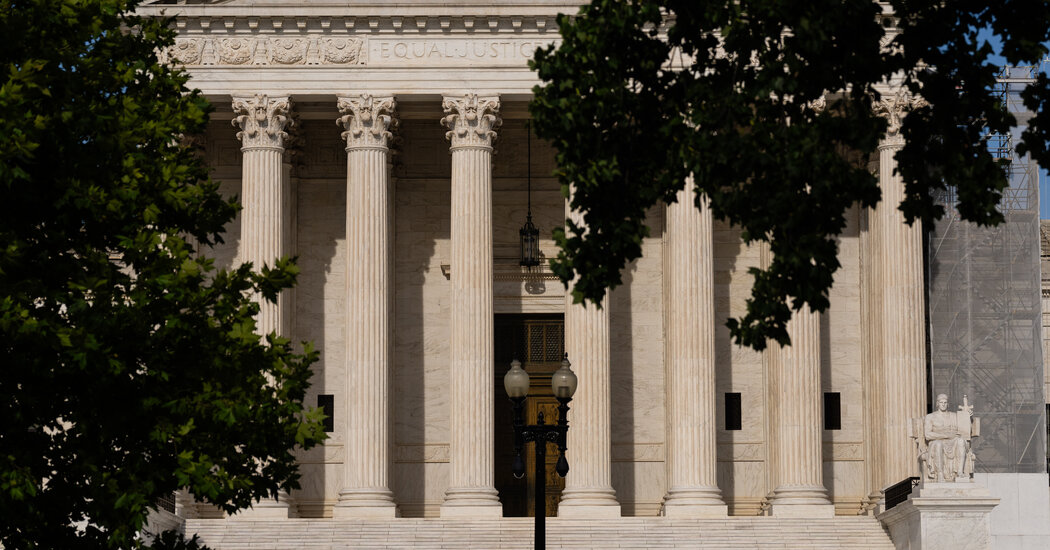
The case, one of several this term on how the First Amendment applies to technology platforms, was dismissed on the ground that the plaintiffs lacked standing to sue.
The Supreme Court handed the Biden administration a major practical victory on Wednesday, rejecting a challenge to its contacts with social media platforms to combat what administration officials said was misinformation.
The court ruled that the states and users who had challenged the contacts had not suffered the sort of direct injury that gave them standing to sue.
The decision, by a 6 to 3 vote, left fundamental legal questions for another day.
“The plaintiffs, without any concrete link between their injuries and the defendants’ conduct, ask us to conduct a review of the yearslong communications between dozens of federal officials, across different agencies, with different social-media platforms, about different topics,” Justice Amy Coney Barrett wrote for the majority. “This court’s standing doctrine prevents us from exercising such general legal oversight of the other branches of government.”
Justice Samuel A. Alito Jr, joined by Justices Clarence Thomas and Neil M. Gorsuch, dissented.
“For months,” Justice Alito wrote, “high-ranking government officials placed unrelenting pressure on Facebook to suppress Americans’ free speech. Because the court unjustifiably refuses to address this serious threat to the First Amendment, I respectfully dissent.”
The case arose from a barrage of communications from administration officials urging platforms to take down posts on topics like the coronavirus vaccine and claims of election fraud. The attorneys general of Missouri and Louisiana, both Republicans, sued, saying that many of those contacts violated the First Amendment.
Judge Terry A. Doughty of the Federal District Court for the Western District of Louisiana agreed, saying the lawsuit described what could be “the most massive attack against free speech in United States’ history.”
This post was originally published on this site be sure to check out more of their content







